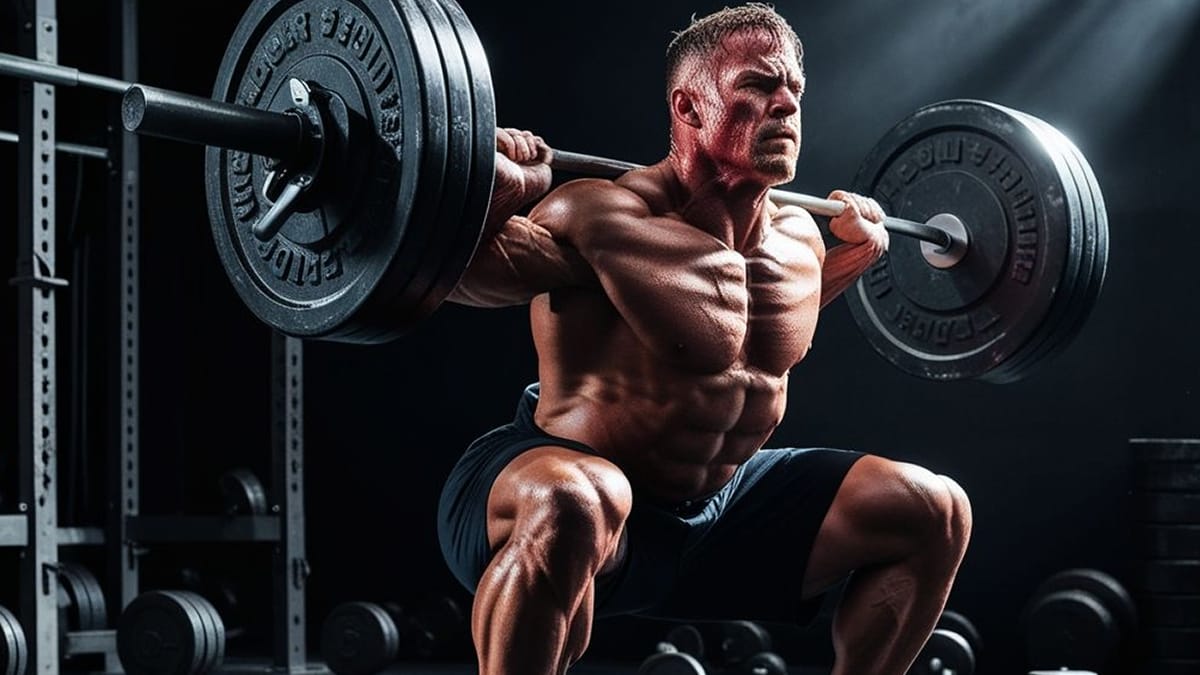When it comes to building muscle, most gym-goers focus on gains, strength, and aesthetics. But hidden beneath the surface of your shredded progress could be a silent, deadly mistake—one that causes internal bleeding, organ stress, and long-term health damage.
And the worst part?
You won’t even feel it—until it’s too late.
Let’s break down this shocking reality.
The Dark Side of Muscle-Building: What You’re Not Being Told
While proper resistance training can transform your body and elevate your confidence, one wrong step in your muscle-building journey can quietly trigger gastrointestinal (GI) bleeding, kidney damage, or vascular strain.
This isn’t fearmongering. It’s backed by clinical case reports, athlete studies, and hard medical science.
The Root of the Problem? Dangerous Overuse of Muscle-Building Supplements and Intensity Without Recovery
In an obsessive chase for mass and definition, many unknowingly abuse pre-workouts, NSAIDs, protein powders, and anabolic substances stacking them on intense training schedules that push the body past safe thresholds.
Some of the most damaging behaviors include:
Using excessive creatine or unregulated “hardcore” pre-workouts
Ignoring hydration and electrolyte balance during heavy sessions
Lifting beyond your capacity without deloading
Daily use of NSAIDs to “numb” soreness
Stacking supplements with little understanding of interactions
The Hidden Dangers: How Internal Bleeding Starts Silently
GI tract bleeding is not always dramatic. It starts micro-level, especially in those combining heavy lifting, high-stress cortisol responses, and digestive system strain.
According to the American College of Sports Medicine, endurance and strength athletes show increased risk for intestinal microtears and ulcers, especially when training while fasted or dehydrated. These lead to occult bleeding bleeding not visible to the naked eye but slowly draining your health.
A 2023 clinical review found that protein supplements combined with dehydration increase stress on kidneys and stomach lining, sometimes leading to acute GI hemorrhage or even rhabdomyolysis in extreme cases.
“I Was Just Trying to Bulk… Until I Ended Up in the ER”
Case in point: A 26-year-old amateur bodybuilder collapsed after training. Blood tests showed low hemoglobin and signs of internal GI bleeding. His routine?
Two scoops of high-stimulant pre-workout daily, triple-dose whey protein, NSAIDs for pain, low hydration, and no rest days. Doctors linked it to chronic micro-bleeding in the stomach and kidney overload.
This isn’t rare. In fact, thousands of similar cases go undiagnosed each year—until sudden symptoms emerge.
Symptoms You Might Be Ignoring
Here’s the scary part: You can feel completely “normal” while your body breaks down inside. Watch for:
Constant fatigue despite good sleep
Dizziness or lightheadedness during workouts
Dark-colored urine
Black or tar-like stools (sign of old blood)
Frequent abdominal pain or cramps
Bloodshot eyes or nosebleeds
A sharp drop in gym performance or muscle recovery
If you notice any of these symptoms, your body might already be in crisis mode.
What the Experts Say
Dr. Jacob Wilson, PhD, a well-known sports nutrition scientist, warns:
“Chronic over-reliance on supplements without hydration, nutrient timing, or gut protection is a silent killer in the fitness industry.”
Meanwhile, a 2024 review in the Journal of Athletic Health confirmed that micro-GI bleeding occurs in 32% of heavy lifters, especially those using multiple muscle-enhancing aids with little nutritional regulation.
The Smart Way to Build Muscle Without Bleeding from the Inside
Building muscle shouldn’t come at the expense of your internal organs. Here’s how to stay jacked—and safe:
1. Hydration Is Your Foundation
Always drink water pre, during, and post-workout. Add electrolytes when sweating heavily.
2. Rotate Your Supplements
Avoid long-term overuse of any single supplement. Cycle off pre-workouts or creatine to give your body a reset.
3. Skip the NSAIDs for Muscle Soreness
Let your body heal naturally. Use foam rollers, hot-cold therapy, or magnesium-rich food instead.
4. Never Train on an Empty Gut
Fasted workouts with intense lifting can trigger intestinal microtears. Have at least a light pre-workout snack.
5. Schedule Recovery Days Religiously
Your body grows when it rests. No exception. Deload every 4–6 weeks.
FAQ
Can pre-workouts cause internal bleeding?
Yes, especially when combined with intense training, dehydration, and NSAIDs. Many formulas irritate the stomach lining and raise blood pressure.
How can I tell if I have internal bleeding?
Look for black stools, dizziness, unexplained fatigue, and sharp stomach pain. See a doctor if symptoms persist.
Are all supplements unsafe?
No. But dosage, quality, and context matter. Overusing supplements without proper hydration, food intake, or rest is what causes harm.
Is training while fasted dangerous?
It can be if combined with heavy lifting or endurance work. Fasted states reduce gut protection, increasing risk of micro-injuries in your GI tract.
What’s a safer approach to building muscle?
Use balanced nutrition, hydrate consistently, avoid overtraining, and focus on progressive overload instead of extreme loads.
Can NSAIDs really hurt my gains?
Yes. They reduce inflammation temporarily but also impair muscle growth and damage the stomach over time.
Recommended Support Products (no-brand):
Digestive support supplements (probiotics, zinc carnosine)
Electrolyte powder
Creatine monohydrate (cycled use only)
Foam roller and mobility kit
Magnesium glycinate capsules
Pro Tips to Avoid the Danger Zone
Always read supplement labels for hidden stimulants or additives
Track how your body reacts over time—use a recovery journal
Eat whole foods before and after workouts
Listen to fatigue signals not just soreness
Get regular bloodwork if training aggressively
Final Thoughts
Chasing muscle shouldn’t cost your long-term health
Just because it’s “legal” or hyped doesn’t mean it’s safe
Build slow, build smart your body remembers everything
Use supplements to support, not to replace, real recovery
Your organs matter more than your pump
Motivational Quote
“He who has health has hope, and he who has hope has everything.” — Arabian Proverb
References
This article was informed by insights and studies available on:
www.health.harvard.edu, www.menshealth.com, www.healthline.com/fitness/exercise, www.acefitness.org
Disclaimer
This content is for informational and educational purposes only. It is not intended to replace professional medical advice, diagnosis, or treatment. Always consult your physician before starting any exercise program.

